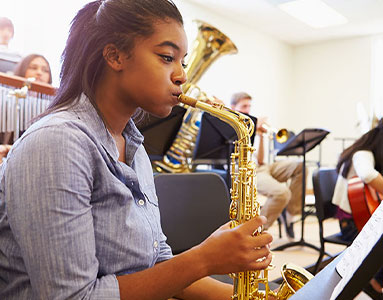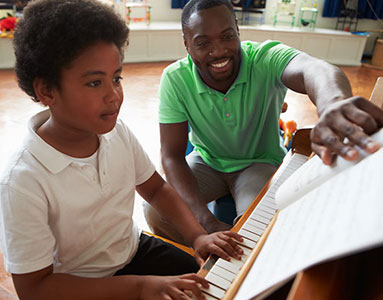Music Education, B.S.

What is music education?
Music education is a field of study associated with the teaching and learning of music. It touches on the development of the affective domain, including music appreciation and sensitivity. The incorporation of music training from preschool to postsecondary education is common in most nations because involvement in music is considered a fundamental component of human culture and behavior.

Music Education Careers
Music education majors can work in:
- Public School Music Teacher
- Choral Director
- Orchestra Director/Conductor
- Music Director
- Band Director
- Marching Band Director
- Church Music Director

Music Education Frequently Asked Questions (FAQs)
Q: What will I learn from studying Music Education?
A: The student majoring in music education will develop skills, concepts, and methodologies
in the following areas: music, including music theory and composition, musicianship,
history, arranging, orchestration, improvisation, and conducting; teaching with technology;
solo performance techniques acquired through private instrumental or vocal study;
vocal and instrumental techniques, pedagogy, and literature related to solo and ensemble
performance; and the relationship of music to other fields of knowledge.
Q: Why should I consider majoring in Music Education?
A: If you have a passion for music, and you like children and young adults, then a career
combining the two might be for you. To succeed in the profession, you should have
a broad knowledge of music, be creative (as a musician and a teacher), and be enthusiastic.
You should also have a positive attitude and excellent communication skills.
Program Faculty
| Name | Phone | |
|---|---|---|
|
Dr. Vanessa Pitts Bannister |
vanessa.pittsbannister@famu.edu | (860) 412-6659 |
| Dr. Nicholas Thomas Associate Professor |
nicholas.thomas@famu.edu | (850) 412-7256 |





